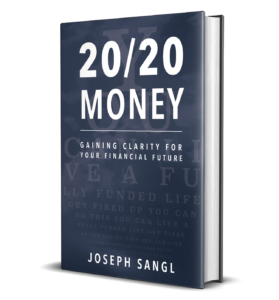5 Questions to Ask Before Spending Money
Do you ever get caught in the cycle of “see it, want it, and buy it?” Before you spend you don’t stop to think through your purchase. Now you not only have a new gadget that’s all yours, but you also have a high monthly payment to go with.
It is my hope that this post will help provide you with practical questions to ask before you spend a substantial amount of money. Practical questions that will help you truly understand the enormity of the decision, and help you make the decision that is best for you and your family.
Question 1: “Do I need this?”
This can seem very basic, but as a “spender” I can get caught up in the “I WANT THIS!” moment and never stop to ask, “Do I need this?”
My garage is full of “I WANT THIS!” items that we never use. EVER! This includes a RC Airplane (it’s cool – but I don’t use it), bike (never ride it), tennis rackets (once every three years – not a priority), and many other items.
Pausing to ask, “Do I need this?”, can prevent a lot of poor spending decisions. I’m not saying that I never purchase things that are pure “wants” – I am saying that when I ask the key question, I make much smarter overall decisions.
This question becomes a “gate keeper” of sorts. Something to help prevent impulsive spending. If you are an impulsive spender, and need help to stop check out this post [HERE].
BONUS: Wait overnight before answering the question! It is amazing the clarity that a good night of sleep will bring to a spending decision!
Question 2: “Will this item INCREASE or DECREASE in value?”
Asking this simple question can prevent a lot of poor spending decisions!
Chewing gum goes down in value. So do cars, 4-wheelers, refrigerators, swimming pools, and clothes.
Businesses can go up in value. So can houses, land, antiques, mutual funds, company stocks, bonds, and intellectual property (patents, licenses, etc).
Here is what I KNOW: Not all of your purchases can be for items that increase in value, but if ALL of your purchases go down in value – something ain’t right!
BONUS: Find someone you know who is prospering with their investments. Invite them to lunch (pay for his/her lunch) and ask them to mentor you! They will probably LOVE IT!
Question 3: “Do I have the money to pay CASH for this item?”
I got to write the “I Was Broke” part of my book, I Was Broke. Now I’m Not. (you should buy a copy HERE) by always financing stuff. My car, truck, next truck, engagement ring, wedding ring, honeymoon, credit cards, college student loans, furniture, and many other things were financed because I did not stop and ask myself this key question. I know that the day I started asking this question was THE DAY that my family started winning with money.
If I do not have the cash to pay for it, I’m not buying it UNLESS it is a house or an asset that will increase in value (like a business, rental house, etc). Even then, the answer is still usually “NO!” unless I have all of the money available to pay cash.
Question 4: “Will this purchase generate income for me or take income away?”
What an incredible question to ask – and what a difference it will make in the way you think about money! I used to earn money and then immediately begin pondering which fun item I was going to buy. I rarely (if ever) thought about the fact that I could use the money to buy in to a small business, purchase stocks and mutual funds, start a small business or purchase a rental home.
Even more, I did not truly realize the ACTUAL cost of many of the items I had purchased. I had purchased a new car (my smokin’ hot Chevy Cavalier) and I only thought of the bank loan as my “cost” to purchase. In actuality, I also added the costs of insurance, property taxes, license tags, maintenance, repairs, and additional gasoline consumption. Not to mention the lost potential to make money with what I was currently sinking into all the bills associated with that car.
Before you spend, just stop and ponder the options available to you to use those resources to generate more income for you in the future.
BONUS: Review your budget to see how much your current possessions are costing you on an ongoing basis. There are many purchases that are “gifts that keep on giving.” By looking at things you’ve already purchased, or subscriptions you already have, you can find ways to lower your expenses.
Question 5: “Will this help me achieve my future plans, hopes, and dreams?”
I believe that the number one reason that people fail with their financial plans is a lack of organization and the lack of a plan. One of the best ways to plan your finances is to budget each month. To learn more about budgeting check out this post [HERE]. Budgeting is planning where you spend your money with you long term goals in mind.
Without a longer-term perspective, it becomes extremely easy to fall into the trap of living for the minute, and immediately spending every single dime we earn. As one develops a longer-term perspective, it really helps us recognize that spending all of our money right away will rip our future dreams away from us!
When my family first got started on improving our financial future (Dec 2002), I noticed that we started looking a few months ahead. Now, eighteen years later, my entire perspective has shifted. You see, I want to leave a legacy for my children and community. I want to leave a huge inheritance to my family, church, and others. My wife and I want to give our children a paid-for college education. We want to give them a paid-for house when they graduate. We desire to teach them to manage their finances recognizing that it is not just FOR THEM, it is FOR THEM TO HELP OTHERS!
I’m 46 right now. Statistics say I am over 1/2-way through my life. Time is short. Too short to spend all of our resources on stuff that does not support our plans, hopes, and dreams.
This is also why I wrote the book 20/20 Money. I wanted to walk you through practical steps you can take to not only discover, but fund your God-given purpose. Too often I see people buy into the lie that their big dreams aren’t possible because their income just won’t support it. My book is about helping you move forward to live a Fully Funded Life.
So Before You Spend…
THINK! Think about what this big purchase means. Not just the temporary gratification, but how it will impact you in the long run.
My hope is that by slowing down and asking yourself these questions you will be able to gauge how important a large purchase is to you, and how it will benefit you. You will make fewer, more meaningful purchases. You’ll still get to indulge in some “I wants,” but you’ll notice there will be less times that you spend money on something and wonder later “Why did I buy that?”

